The sixth edition of Women Deliver Conference (WDC), which concluded in Kigali, Rwanda, saw more than 6000 participants across the world take part in dialogues, events and plenaries about access to health, education, reproductive rights among many other themes.
For the first time since its first edition in 2007, the CEO of WDC has been Pakistani woman named Maliha Khan. With the core representation from the country, the Conference saw many bright Pakistanis who are doing remarkable work back home and got a chance to speak about it at the event as well. Malala Yousufzai was of course a name not alien to anyone and addressed a plenary but alongside her there were many Pakistanis who also shone in their own way.
Here are the five prominent Pakistanis who represented their country in the WDC 2023:
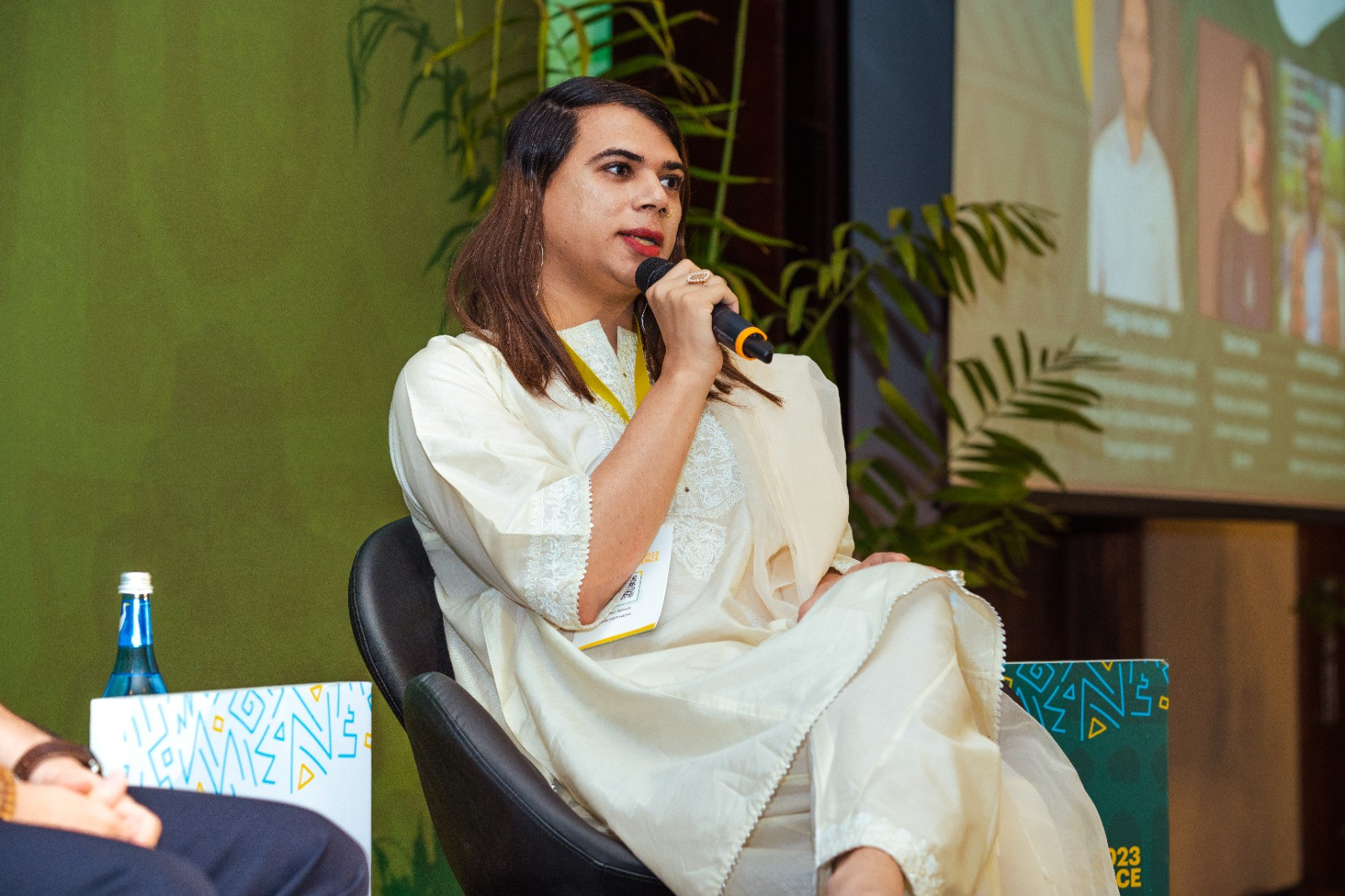
Saro Imran
A transgender activist and a social entrepreneur who is running ‘Pink Centre’ in Pakistan, Saro’s work focuses on economic empowerment of transgender women. She participated in two panel discussions where she narrated her struggles as a transgender woman, and in the second, she spoke about her proposal regarding universal health coverage in line with her community living in rural and semi-urban areas in the country. She highlighted that major allocation of the funds are reserved for metropolitan cities, where many community members live in non-urban areas hence a rethink is required for distribution. She was also a moderator for a panel on Women for Global Fund regarding gender lens in the program, as well as a part of a panel discussion on the additional burden on adolescents and youth pertaining to the rise of right wing groups across the world.
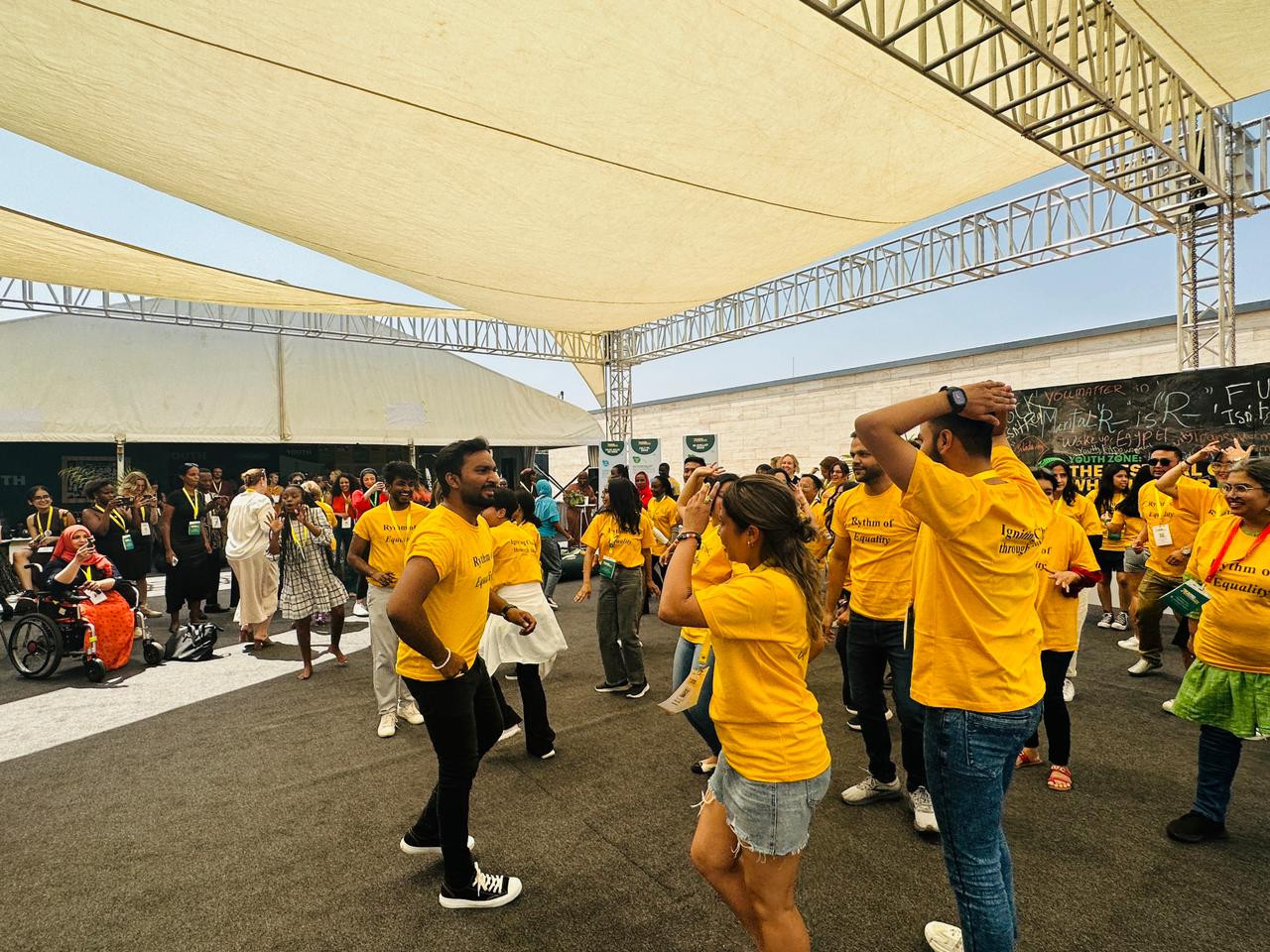
Joshua Dilawar
A young activist working on youth empowerment, meaningful engagement, health and wellbeing, Joshua is from Institute for Social and Youth Development (ISYD), National Coordinator of YPEER Pakistan, Head of Youth Programs at Peace and Justice Network (PJN) and member of Prime Minister's National Youth Council. Joshua happens to be a member of Women Deliver's Asia Steering Committee and worked along with other members for the last few months for the Asia Convening of Women Deliver, developing Asia Call to Action and highlighting Innovative Solutions across Asia.
“I was involved in many sessions and activities at the Women Deliver Conference including moderating a concurrent session: *Harnessing the Power of Education to End harmful Gender Norms and Stereotypes in Schools which was organized by Partner Coalition for Ending Gender Stereotypes in Schools (represented by Equimundo, Room to Read, UN Girls’ Education Initiative, Transform Education, UNICEF India, VVOB), Global Partnership for Education (GPE), Girls Not Brides, AU-CIEFFA, UNAIDS, UNICEF,” he said.
Ensuring that the crowds dance to tunes, Joshua also led a flash mob which comprised of song against VAW, alongside Nepali and African tunes. However, Pakistani number Ho Jamalo garnered a large audience as onlookers joined in the circle to dance to his ‘Rhythm of Equality’.
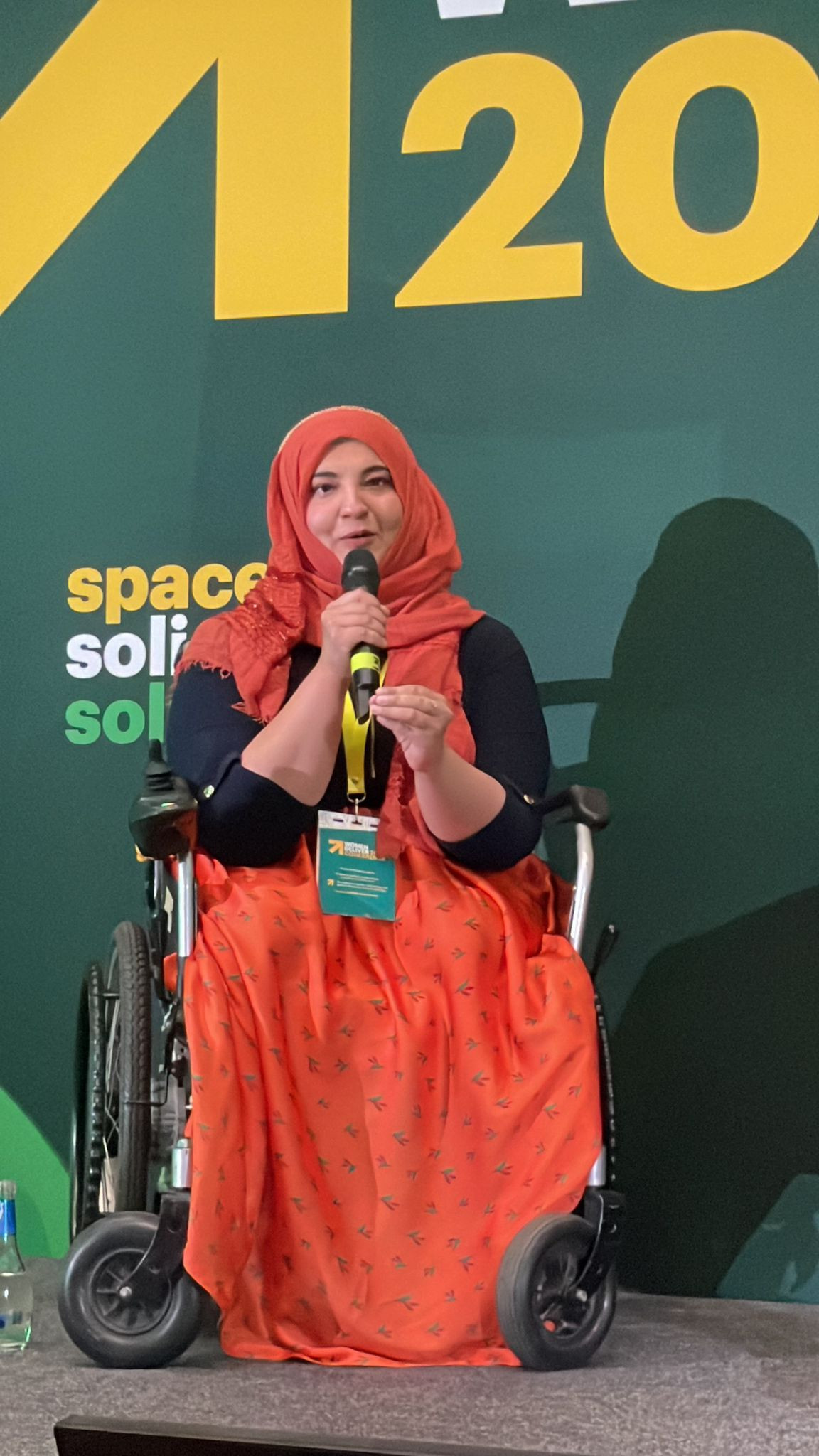
Tanzeela Khan
As someone who has been a part of the Conference since 2016, Tanzeela Khan contributes immensely to disability rights, SRHR as well as menstrual healthcare because she has also been running an initiative called ‘Girly Things.Pk’.
“I feel we need to bring Pakistani or South Asian perspective to these platforms because western ideas get more space. This doesn’t mean that women in other countries are not suffering rather many a time they may not be aware of the different platforms where they can raise their voice. Through representation, we can remove confusions about our part of the world as well as call out any organisations which exploit Pakistan for their own gain by constantly painting it as a site of pity.”
Tanzeela was also a judge for the Film Festival and as a person with disability she brought a different perspective about inclusivity. She was also a part of two panels, one about digital censorship and second led by FP2030 to weigh in the opinion of people with disabilities regarding campaigns and policies.
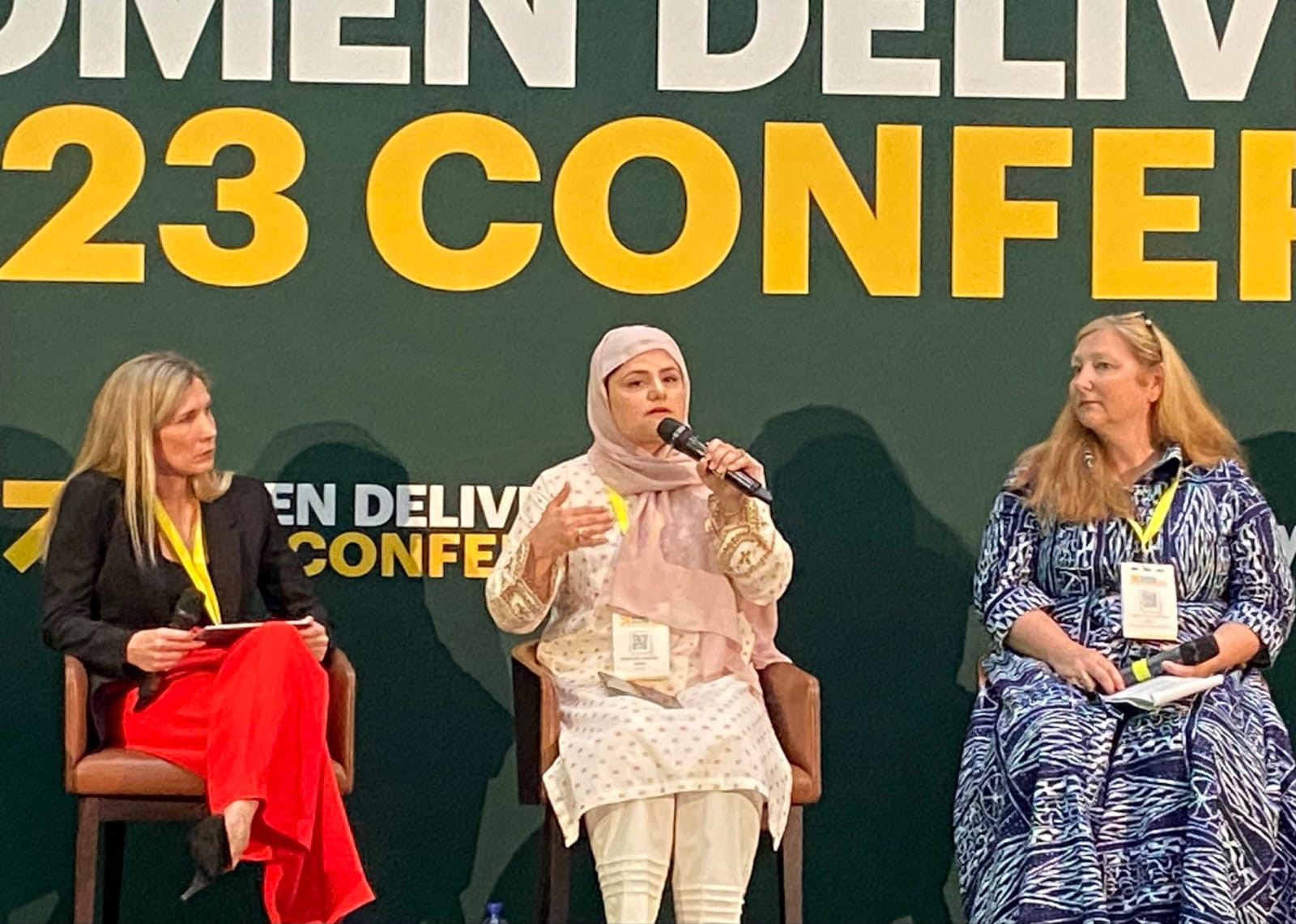
Noor-us-Sabah Rakhshani
Hailing from Balochistan as a public health professional, Noor-us-Sabah has a degree from Bolan Medical Degree College, Quetta as well as a doctorate from John Hopkins. Representing Pakistan in WDC 23 as a speaker, Noor told that she is Director Technical with PHC Global Pakistan and happened to showcase the knowledge hub for reproductive and maternal health in South Asia.
“It is a global collaboration. We are a part of the global hub and there are four other hubs for Africa, MENA region, Latin America and South Asia which includes Pakistan, Bangladesh Nepal and Sri Lanka. Our main objective is to promote AI developed solutions which are developed regionally, and that are enabled and informed by data and experiences of local people and communities. In the Conference we had a plenary discussion because we focus on maternal health. We described and introduced our knowledge hub to the audience,” she said.
As a co-founding director of an organisation she feels more women representation in tech is needed so that there are more women in digital solution creation: “We have found out that even in AI only 28% of the workforce in AI globally are women so their experiences are not translated into the solutions which are created.”
She strongly believes that this was her way of fighting for representation of women in the health sector and she took pride that she took a platform as a speaker to highlight the great work being done in Pakistan regarding research and data analysis in public health.
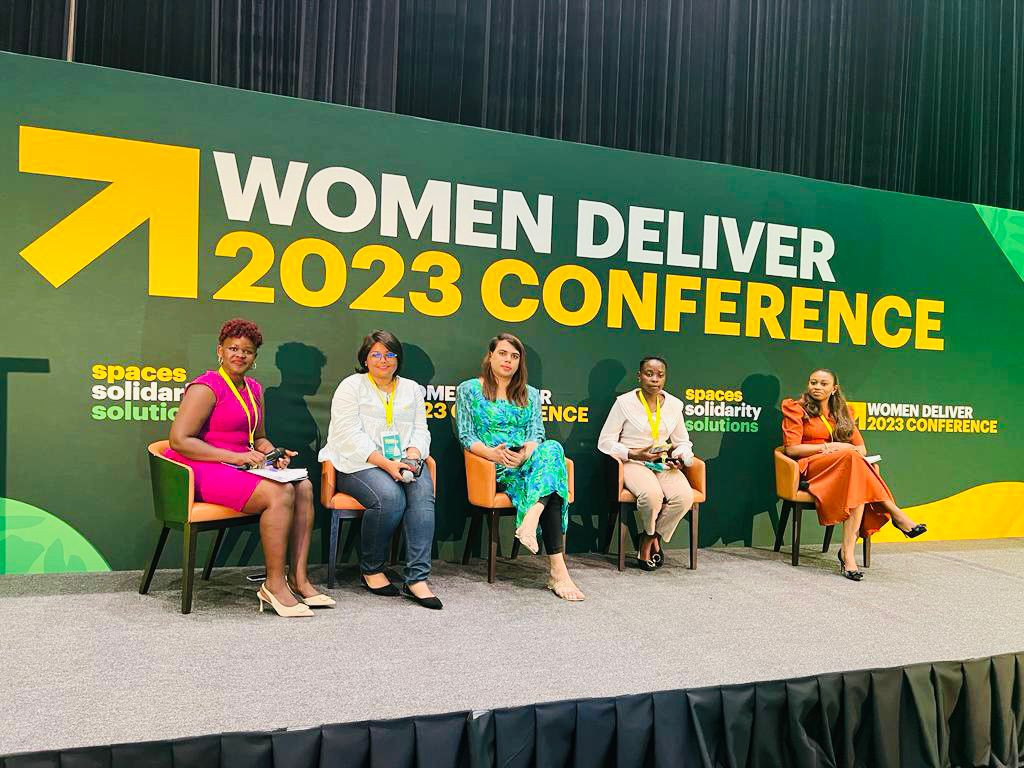
Sumaira Lokhandwala
Representing HER Pakistan as its CEO and Co-Founder, Sumaira Lokhandwala from Karachi participated in the Conference as a delegate to throw light on the work being done in Pakistan on menstrua health and access to menstrual hygiene products.
“As an intersectional feminist and menstrual health leader from Pakistan, attending the Women Deliver Conference 2023 in Kigali, Rwanda was an incredibly inspiring and empowering experience. The conference served as a platform to foster learning, collaboration, and networking among change-makers committed to improving the lives of women and girls globally. The atmosphere was filled with hope, determination, and a shared vision of a world where women and girls can live with dignity and pursue their dreams without barriers,” she said.
She added that the conference highlighted the critical importance of menstrual health, recognizing that it goes beyond a mere biological process. Instead, it has far-reaching social, economic, and educational implications: “Unfortunately, due to the prevailing taboos and stigmas, menstrual health often remains neglected, leading to inequality and restricted access to education, healthcare, and opportunities for millions of menstruators.”
With representation from over 120 countries, Women Deliver Conference 2023 was held after a gap of four years, unlike its usual three years owing to Covid-19 pandemic. The Conference which brings in organizations from across the globe, offers a great platform to have engaging dialogues, build connections and exchange ideas about topics which are often neglected by mainstream media. The cohort from Pakistan garners a lot of praise from the attendees who learn a lot about the work being done by youth as well as other Pakistanis who have been in the sector for many years.
Zoya Anwer is a freelance journalist who has covered topics related to gender equality, ethnic and class dynamics, and relationships between individuals and cities. She can be reached at @ZoyaAnwerNaqvi
All facts and information are the sole responsibility of the author
